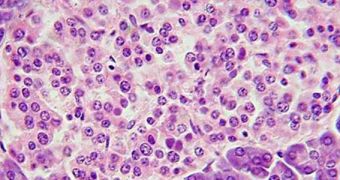Investigators in the United States announce the discovery of a new mechanism underlying the development of type I diabetes. The group, based at the Harvard School of Public Health (HSPH), says that a simple molecular approach to targeting this mechanism may reduce the incidence of the disease.
The previously-unknown pathway is described in a new paper, published in the November 13 online issue of the journal Science Translational Medicine. The team says that this process leads to malfunctioning insulin-producing pancreatic beta cells, which trigger type I diabetes.
By applying a relatively-simple chemical intervention on these pathways, the functionality of beta cells can be restored, and the development of the disease hindered, e! Science News reports. The discovery may aid millions of people around the world who are dependent on daily insulin shots.
“This study breaks new ground because it focuses on boosting beta cell performance and shows that beta cell preservation is possible even in the face of” attacks from the body's own immune system, explains HSPH expert Gökhan S. Hotamisligi, the senior author of the new study.

 14 DAY TRIAL //
14 DAY TRIAL //